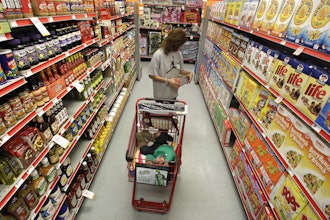There were more than 200 food recalls in 2018. When recalls happen, it is highly damaging to a company’s reputation and it instills fear in consumers. Along with risking people’s health and lives, brands are sometimes faced with millions of dollars in lawsuits, which can leave them in ruin.
If you are a food safety supervisor, quality control manager, plant manager or operations manager, it’s up to you to prevent recalls and lawsuits from ever happening. But how can you do this? By taking extra precautions and being proactive when you’re on the job.
Here are four ways in which producers can make food that is safe for the public to consume as well as uphold their stellar reputations.
1. Use Trustworthy Detection Methods
What level of detection can your in-plant system provide? If you find that a machine part on your line is damaged or missing, you don’t want to guess whether or not a piece of it fell into your product. You want to know.
You may want to rely on a third party for precise detection of a foreign contaminant. If your product’s traceability is up to snuff, then you can trust detection experts to zero in on the precise lot where you suspect contamination.
Finding and extracting a contaminant — whether it’s through a self-audit or a third party inspection service — offers assurance that the rest of your product is safe and sellable. This is significantly more cost-effective than scrapping a batch of product, and exponentially more cost-effective than issuing a recall.
2. Maintain Product Traceability and Comprehensive Reporting
Whether you’re a small food production operation or a nationally distributed brand, traceability is key to preventing a recall. If you have reason to suspect that a foreign contaminant has entered your food supply, you need to have a precise way to determine when the contamination happened, and where in your production chain it is currently located.
Make sure you are keeping accurate records that contain only pertinent information. If record keeping becomes a to-do list item, employees will get complacent. If you have a real-time data recording system in place, you can catch an error and prevent it from taking up more of your time and effort — especially if it’s going to result in an unsellable product anyway.
3. Monitor Your Allergen Program Internally and Externally
There are two main reasons that so many food recalls involve allergens: Either because the allergens are unintentionally present, or the food was mislabeled. An allergen-related recall is a clear sign that your operation lacks organization and attention to detail.
Avoid this pitfall internally by making your protocols simple to execute and difficult to deviate from. Color coding, labeling, cleaning and segregation are all part of allergen management.
You can also manage this risk by looking externally. Are you auditing your suppliers? Make sure that your supplier testing is more than just a checklist. Be persistent about receiving full chemical and biological analyses for each lot of product you’re using. Don’t let a single supplier put your otherwise-thorough HACCP plan at risk.
4. Look for Ways to Continuously Improve Your Process
Continuous improvement ensures quality, of course. It also helps ensure consistency in your product. And what better way to be consistent than to have consistently safe products?
You should already have an HACCP plan and a list of Good Manufacturing Practices in place. You know how to prevent food safety issues on paper, but there are practical concerns that often arise during the flow of production.
One area that’s easy to overlook is your workflow. Are you placing more stress on equipment than it can handle? Are you allowing employees adequate time to thoroughly clean production equipment between line changes?
Don’t let the discovery of a foreign contaminant be the reason you improve your food safety procedures. Look for ways that you can improve your process via preventive maintenance, training, documentation and detection. Make this a team effort that involves the quality, safety and operations departments.
Conclusion
Taking the basic food safety measures is not enough. By going the extra mile, you can ensure that your food production standards are the best in the business, as well as protect consumers and your brand at the same time.
Chris Keith is Vice President of Sales, Marketing and Customer Service at FlexXray.


















